From Daniel Steinhage (AWI) and Steen Savstrup (DTU Space), Antarctica, 13 January
Since we arrived in Antarctica we’ve been able to install the two instruments on the aircraft and do a calibration flight in preparation for the campaign. This was all done at the NOVO station where we met the AWI plane before our planned flight to the Concordia station.
On 10 January we first removed various instruments from the plane that had been used for the previous geo-scientific mission. We kept the gravity meter, the basic data acquisition system and some auxiliary devices that were installed in the plane.
Immediately after lunch we started installing the EMIRAD-2 horn antennas and its rack, which will be used to validate the SMOS measurements.
We were lucky with the weather; it was nice and sunny with just a little wind so that we were able to spread out the transport boxes. This made packing the removed equipment and the installation of the new stuff very easy.
We continued with this exercise the following day and managed to finish by the early evening. The alignment of the two horn antennas was measured and first tests were successfully carried out.
The ground test of EMIRAD in the morning of Saturday 12 January went well as did the short test and calibration flight which we finished in time for lunch. The calibration was carried out above the ocean just north of Novo runway.
In the afternoon we packed the POLAR 6 aircraft with our spare parts and all the remaining equipment into our container for storage. Also our own polar gear had to be checked and reduced, since the weight on the transit flight is limited.
By then we were ready for the transit flight. Unfortunately the weather was overcast with light snow and drifting. This stopped us going on to the Kohnen German research station, which was to be our first stop on the way to the Concordia station.
The other stopover will be at Amundsen-Scott station, which is an US scientific station at the geographic South Pole and where we will refuel.








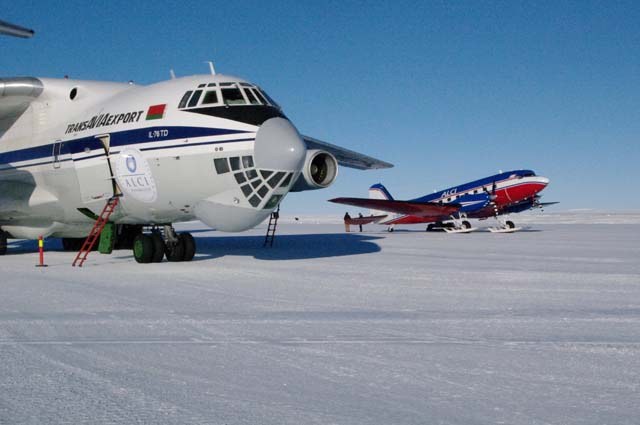
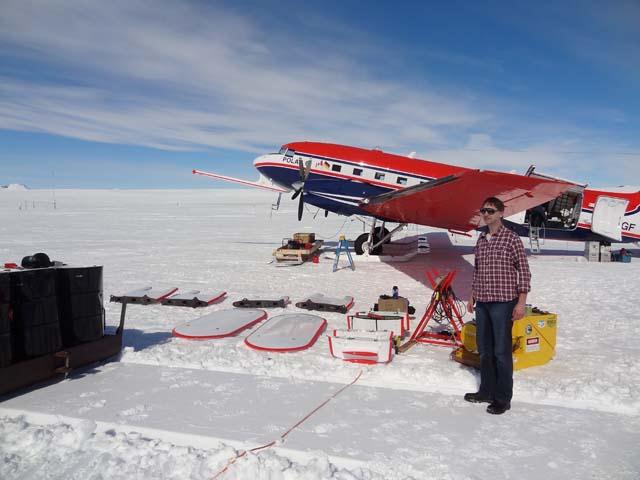
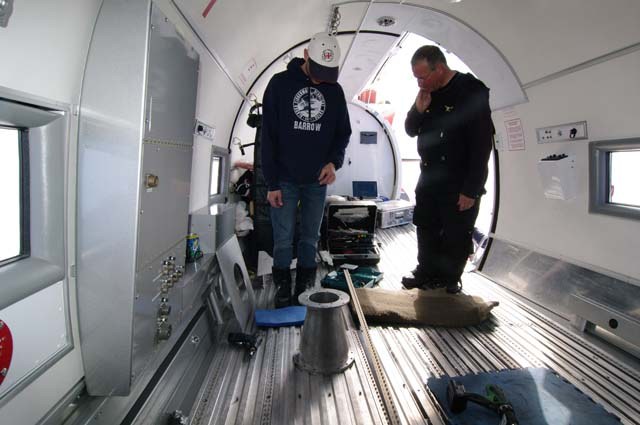
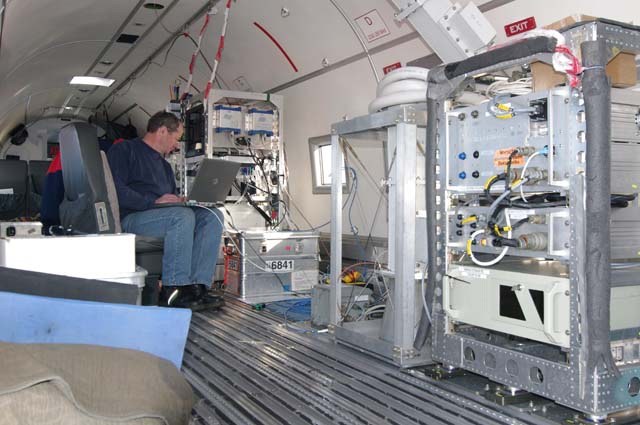
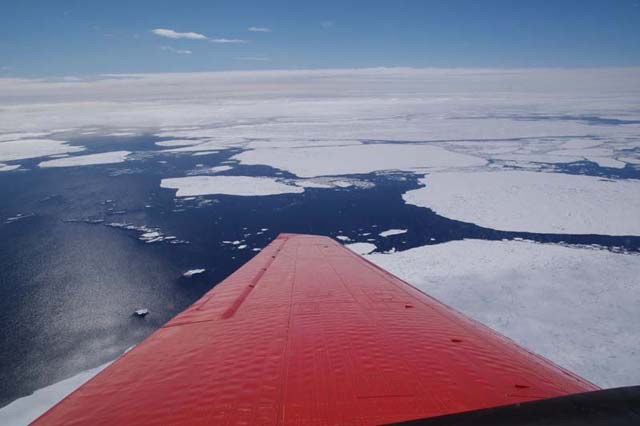

Discussion: no comments